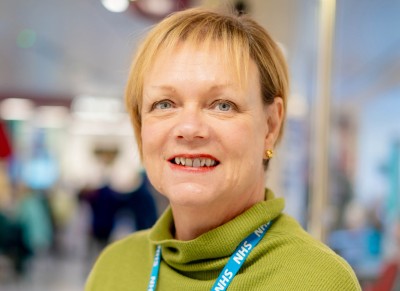
Board Sub-Committees have been established to discuss Board matters in further detail. Each Sub-Committee is made up of members of the Board of Directors and subject matter experts attend to assist and inform the members in discussion. Each one is chaired by a Non-Executive Director.
More information on the Quality Committee, Audit and Risk Committee, Finance and Performance Committee and the Workforce Committee can be found below:
The Remuneration Committee has delegated responsibility for the remuneration, terms of service and succession planning for the Trust's Chief Executive and Executive Directors. Its responsibilities include all aspects of salary, provision of benefits including pensions and contractual terms including cessation of employment. The nomination and selection of candidates for appointment as chief executive or executive director is undertaken separately by an appointment committee.
The Committee is chaired by Sue Glew, Non-Executive Director, and all other Non-Executive Directors (including the Chair) are members.
The Audit and Risk Committee (ARC) is an assurance committee of the Board of Directors. Its primary focus is to provide objective assurance that effective arrangements are in place across the Trust and its subsidiaries (the Group) for governance and internal control.
ARC provides the Board with a means of independent and objective review of financial and corporate governance, assurance processes and risk management across the whole of the Trust’s activities (clinical and non-clinical) both generally and in support of the annual governance statement. In addition, the committee:
- Champions and promotes highly effective risk management and ensures that the risk management process and culture are embedded throughout the Trust
- Improves the standard of decision-making on risk management throughout the Trust
- Maximises patient safety through effective and integrated control systems
- Ensures that appropriate standards are set and compliance with them is monitored, in non-financial, non-clinical areas that fall within the remit of the Committee
- Monitors corporate governance (e.g. compliance with terms of authorisation, constitution, codes of conduct, standing orders, standing financial instructions, maintenance of register of interests)
- Provides assurance of independence for external and internal audits.
The Committee is chaired by Ian Ailles, Non-Executive Director, and two other Non-Executive Directors are members.
The Finance and Performance Committee (FPC) is an assurance committee of the Board of Directors. Its primary focus is to provide objective assurance that the systems for financial and performance management are robust and effective. In addition, the committee provides oversight for the processes identified in the NHSI/E document ‘A New Approach to Non-Executive Director Champion Roles’ 2021 which identified roles for this committee concerning:
- Procurement – understanding the scope, priorities and challenges of procurement helping to raise awareness of commercial matters and facilitate discussions that identify benefits and supporting Procurement Target Operating Model
- Oversee Cyber Security providing checks and challenges and reviewing risks and mitigation
- Emergency Preparedness, Resilience and Response (EPRR): assurance that the organisation has allocated sufficient experienced and qualified resources to EPRR
The Committee is chaired by Keith Nurcombe, Non-Executive Director, and two other Non-Executive Directors are members.
The Quality Assurance Committee (QAC) is an assurance committee of the Board of Directors. Its primary focus is to provide objective assurance that the systems for the strategic delivery of all aspects of the Trust’s quality agenda and strategies are robust and effective. In addition, the Committee provides oversight for the processes identified in the NHSI/E document ‘A New Approach to Non-Executive Director Champion Roles’ 2021 which identified roles for this committee in relation to:
- Doctors disciplinary: The Chair of the committee has designated non-executive oversight of the doctors’ disciplinary process
- Hip fractures, Falls & Dementia linked hip fractures and falls: The committee provides oversight of the Trust's protocols to ensure patient safety, prevention, and risk management in this area
- Palliative and end-of-life care (PEoLC): Providing assurance to the Board that the Trust is aware of, and adhering to, the standard of care in relation to PEoLC and reviewing PEoLC complaints
- Resuscitation: Providing assurance that the resuscitation policy is agreed upon, implemented and regularly reviewed within the clinical governance framework
- Learning from deaths: Providing assurance on the implementation of the learning from deaths framework
- Health and safety: Scrutiny of and assurance to the Board of the quality of health and safety structures within the Trust.
- Safeguarding: Scrutiny of and assurance to the Board of the Trust’s safeguarding performance
- Safety and Risk: Provide scrutiny of and assurance to the Board of the Trust's governance of safety
- Children and Young People: Provide scrutiny and assurance to the Trust’s governance structure to ensure the appropriate care of children and young people
The Committee is chaired by Jayne Stringfellow, Non-Executive Director & Senior Independent Director, and two other Non-Executive Directors are members.
The People Committee (PC) is an assurance committee of the Board of Directors. Its primary focus is to provide objective assurance that the systems for the strategic delivery of all aspects of the Trust’s people and organisational development agenda and strategies are robust and effective. In addition, the Committee provides oversight for the processes identified in the NHSI/E document ‘A New Approach to Non-Executive Director Champion Roles’ 2021 which identified roles for this committee concerning:
- Security management - violence and aggression: Ensuring that health and wellbeing strategies within the Trust consider staff wellbeing support following incidents of violence and aggression
- Wellbeing guardian: To provide assurance to the Board that the Trust is a wellbeing organisation and a healthy workplace in which NHS staff and learners can work and thrive, by scrutinising the organisation’s activities from a health and wellbeing perspective and acting as a critical friend.